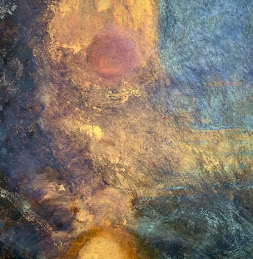Then Mom died of a glioblastoma in her brain stem and Dad is losing his grip on his mind as we watch and wait and just try to keep him safe. My sister and I talk about this present moment, where he is now and what time is like for him, and that leads to talk about Mom and what happened to her, how sudden and terrifying and weirdly acute it was. She was the one who taught us to use our brains for self-protection, as the marker of identity, as the management tool for complicated feelings, as the place to shove unwanted or confusing things. These were some of her survival skills. She died at 60 when she was betrayed by her brain.
Nothing I could do after she died could help me manage the loss and love and grief; I could never think my way through that. And I have, I see now, very poor skills at living with grief. Having a parent with dementia is like grief telling me to get a guest room inside myself ready for a permanent stay, but in order to do so I have to find the space and create the plans and make the walls -- and I have so few tools and such little material to build with, I am bereft.
I look backward (as I am sure all of us dealing with grief do in these moments) and see times when there was loss, when I lost someone, and it can overwhelm. Learning to let it happen means really recognizing how hard a life of loss is. Means seeing how hard parts of my life have been, because I loved people and then they were gone and I did not know how to let that in. I did not understand that I have been brokenhearted. Or that feeling the intensity of loss is real and good and a part of living that is pervasive, common, and expected.
Last week I recalled a childhood friend who died in a boating accident at 15, and I allowed myself to remember that I loved him, that I had met him in second grade and that I had looked forward to being in high school with him, that he made me laugh, that he was wry, that he was sweet. It was hard to fight through the fear of facing that memory. But I am learning that if I can make space for those good memories and those real feelings, and that loss that is so real to me, then it may be possible to build guest rooms inside myself and to make the space for all that love, the space for grief.



